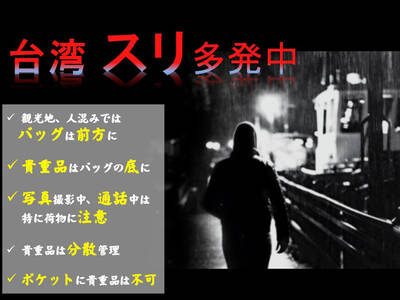Eating fruit and vegetables can help relieve constipation, but eating them the wrong way can worsen the condition, a nutritionist said yesterday.
Chi Mei Medical Center nutritionist Chu En-chi (朱恩琪) said people often eat banquet-style foods during the Lunar New Year holiday, adding that as such foods are usually prepared with meat or fish and are high in fats, salt and calories, some people might have digestive tract problems after the holiday.
Constipation is a common problem and many people believe that eating fruit and vegetables, which are high in dietary fiber, can help relieve the symptoms, she said.
“However, eating them the wrong way can worsen the problem,” she said.
“If people do not drink enough water, the dietary fiber will not be able to absorb water and expand in volume, so the stool will be small and hard, and will move slowly through the intestines,” Chu said, adding that the intestines absorb water from food to rehydrate the body, so the stool might become dry and have difficulty passing though the end of the digestive tract.
She someone who weighs 60kg should drink at least 2.1 liters of water per day, along with dietary fiber intake, to relieve constipation.
Chu said there are two types of dietary fiber: soluble and insoluble.
Soluble fibers can lower cholesterol and glucose levels and insoluble fibers can speed up the rate at which stool passes through the digestive tract, she said, adding that both need water to function properly.
She suggested that people who are not used to eating food high in dietary fiber increase their fiber intake gradually to avoid abdominal distention, diarrhea or gas; drink plenty of water along with high-fiber food; and exercise regularly to relieve constipation.

GENSLER SURVEY: ‘Economic infrastructure is not enough. A city needs to inspire pride, offer moments of joy and foster a sense of belonging,’ the company said Taipei was named the city with the “highest staying power” in the world by US-based design and architecture firm Gensler. The Taiwanese capital earned the top spot among 65 cities across six continents with 64 percent of Taipei respondents in a survey of 33,000 people saying they wanted to stay in the city. Rounding out the top five were Vietnam’s Ho Chi Minh City (61 percent), Singapore (59 percent), Sydney (58 percent) and Berlin (51 percent). Sixth to 10th place went to Monterrey, Mexico; Munich, Germany; Sao Paulo, Brazil; Vancouver; and Seoul. Cities in the US were ranked separately, with Minneapolis first at

The Japan-Taiwan Exchange Association has cautioned Japanese travelers to be vigilant against pickpockets at several popular tourist spots in Taiwan, including Taipei’s night markets, the Yongkang Street area, Zhongshan MRT Station, and Jiufen (九份) in New Taipei City. The advisory, titled “Recent Development of Concerns,” was posted on the association’s Web site under its safety and emergency report section. It urges travelers to keep backpacks fully zipped and carried in front, with valuables placed at the bottom of the bag. Visitors are advised to be especially mindful of their belongings when taking photos or speaking on the phone, avoid storing wallets and

Scoot announced yesterday that starting in October, it would increase flights between Taipei and Japan’s Narita airport and Hokkaido, and between Singapore and Taipei. The low-cost airline, a subsidiary of Singapore Airlines, also said it would launch flights to Chiang Rai in Thailand, Okinawa and Tokyo’s Haneda airport between December and March next year. Flights between Singapore and Chiang Rai would begin on Jan. 1, with five flights per week operated by an Embraer E190-E2 aircraft, Scoot said. Flights between Singapore and Okinawa would begin on Dec. 15, with three flights per week operated by Airbus A320 aircraft, the airline said. Services between Singapore

ENDORSING TAIWAN: Honduran presidential candidate Nasry Afura said that Honduras was ‘100 times better off’ when it was allied with Taipei The Ministry of Foreign Affairs yesterday said it would explore the possibility of restoring diplomatic relations with Honduras based on the principle of maintaining national interests and dignity. The ministry made the remarks in response to reporters’ questions regarding an article titled: “Will Taiwan Regain a Diplomatic Ally?” published in The Diplomat on Saturday. The article said Honduras’ presidential election in November could offer Taiwan the chance to regain an ally, as multiple candidates have promoted re-establishing diplomatic relations with Taiwan. Honduras severed diplomatic ties with Taiwan in March 2023 in favor of Beijing, but since switching its diplomatic recognition,